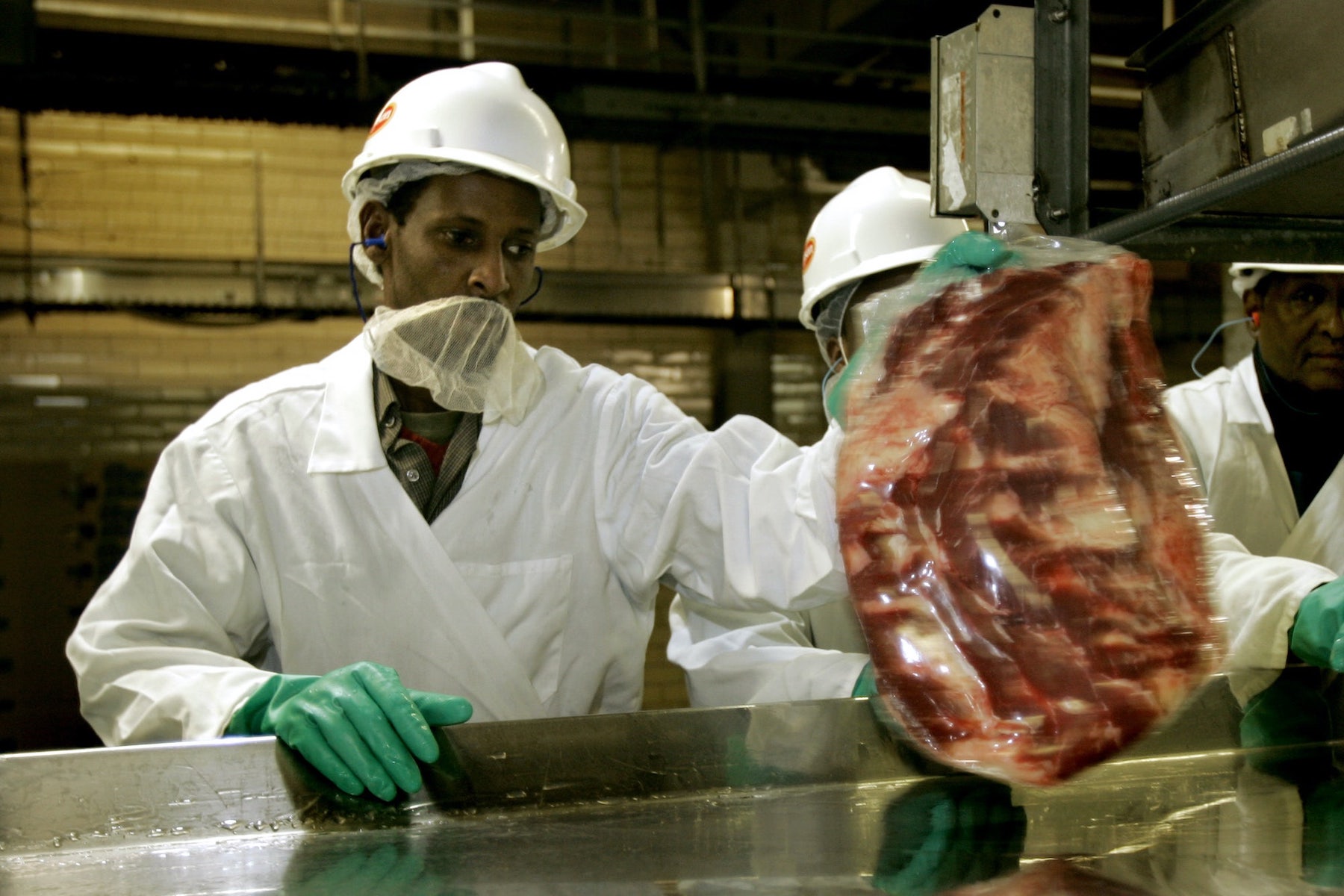A 2021 lawsuit against Superior Farms slaughterhouse in Denver’s Globeville neighborhood has exposed the blatant disregard for workers and brought to light serious issues of religious discrimination, anti-Muslim harassment, and violations of halal slaughter practices.
A Pattern of Discrimination and Harassment
The lawsuit, filed by Mohammed A. Sayed, a former employee at the Denver slaughterhouse, details disturbing working conditions for Muslim employees at the facility:
- Muslim workers, hired as “Halal Bleeders,” were routinely called “Arab Negros” by other employees, even over the plant’s sound system.
- Supervisors took no action to stop this blatant racial harassment, even when this issue was brought up to them.
- Muslim employees were frequently denied bathroom and prayer breaks, even though Islamic faith requires Muslims to pray 5 times daily.
- Requests for time off to attend mosque on Fridays were repeatedly denied, while time off for Christian holidays was granted.
The claims suggest widespread bias against Islamic employees at the Denver meat processing facility, fostering an unwelcoming atmosphere that infringes on fundamental labor protections.
Violations of Religious Practices and Halal Standards
The recent lawsuit also reveals serious breaches in Superior Farms’ halal slaughter practices, which are not only important to Muslim consumers but also exemplify the Denver slaughterhouse’s tendency to cut corners and disregard basic procedures and protocols.
- Non-Muslim employees were allowed to perform halal slaughter, violating religious requirements.
- The slaughterhouse reportedly used improper slaughter methods that didn’t comply with halal standards.
- When Muslim employees like Mr. Sayed refused to certify non-compliant meat as halal, they faced retaliation and ultimately, termination.
These violations not only disrespect the religious beliefs of Muslim employees but also potentially mislead Muslim consumers who rely on halal certification as part of islamic religious practices to fortify their relationship with Allah. Despite these allegations, Superior Farms Denver now claims to sell 100% Halal meat, raising questions about the authenticity of their halal certification process.
Language Barriers and Exploitation
The lawsuit also highlighted how language barriers were exploited to disadvantage Muslim workers. Mr. Sayed, who didn’t speak English fluently, was particularly vulnerable:
- Superior Farms was aware of Mr. Sayed’s limited English proficiency but failed to provide adequate translation services.
- Mr. Sayed was made to sign documents he couldn’t understand, including disciplinary actions and his eventual termination notice.
- This language barrier was used to manipulate and mistreat Mr. Sayed, taking advantage of his inability to fully comprehend or contest unfair treatment.
The exploitation of language barriers exposes a troubling pattern of deliberate marginalization of workers at the Denver slaughterhouse. It’s shameful that Superior Farms knew that Mohammad Sayad didn’t speak English and couldn’t understand the documents yet still forced him to sign them.
The Human Cost of Slaughterhouse Work
This lawsuit sheds light on the broader issues facing Denver slaughterhouse workers. As we’ve seen in other accounts, such as that of Jose Huizar from the same facility, slaughterhouse work takes a severe toll on employees’ physical and mental health. The added layers of racial and religious discrimination, along with exploitation of language barriers, make for inhumane and exploitative work conditions.
Time for Change in Denver: Sign the Petition to Shut Down Superior Farms
We’re asking Congress to shut down Superior Farms’ Denver Facility. Add your name today.

